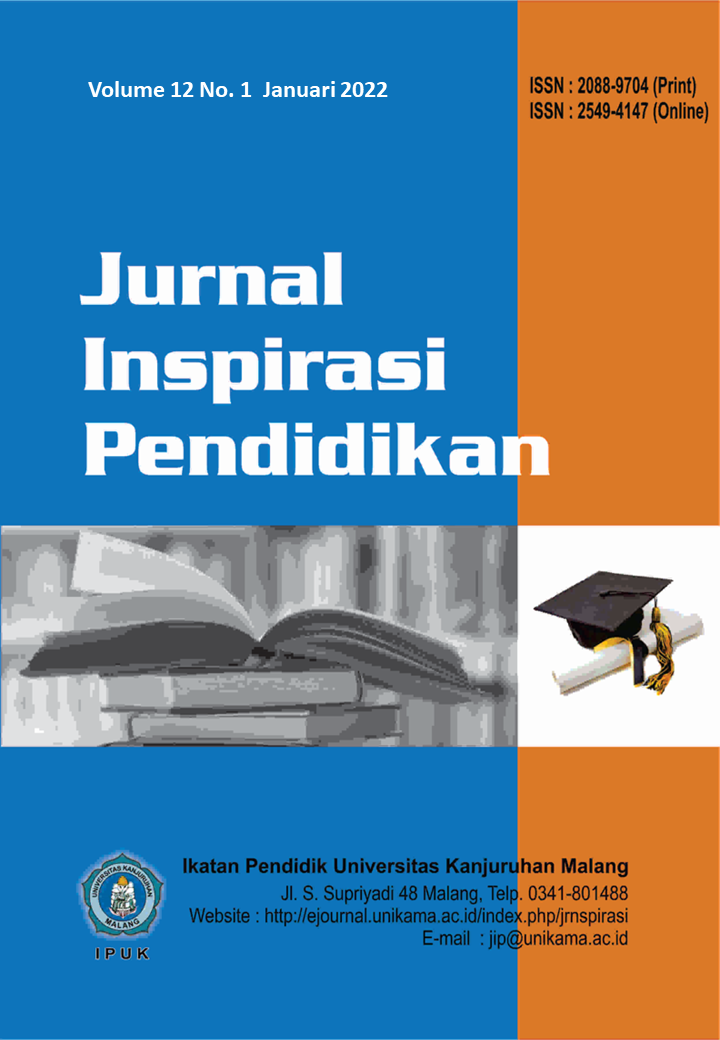Developing A Moodle-Based Learning Management System (LMS) for Slow Learners
Main Article Content
Abstract
This study aimed to develop a Moodle-based Learning Management System (LMS) called eLSIDA (e-Learning STKIP PGRI Sidoarjo Asistif), which is validly used by students slow to study at STKIP PGRI Sidoarjo. This study used 3 out of 5 ADDIE models, namely Analysis, Design, and Development. Expert judgment in this study consists of two experts, material experts, and media experts. The research instrument used to obtain research data is a questionnaire. The data that has been obtained is then analyzed using descriptive analysis. Validation results from material experts obtained a score of 92.5%, while the results of media expert validation obtained a score of 95%. Based on the expert judgment assessment shown that eLSIDA that has been developed in general can be declared valid and worth to be used. The media that has been developed can be accessed through http://lms.elsida.ac.id/Although the development of eLSIDA has been considered valid, the effectiveness of the media on eLSIDA needs to be tested further.
Article Details
The journal allows the author(s) to hold the copyright without restrictions.Â
References
Arikunto, S. (2005). Dasar- Dasar Evaluasi Pendidikan (Revised Ed.). Jakarta: Bumi Aksara.
Arikunto, S. (2013). Prosedur Penelitihan: Suatu Pendekatan Praktik . Jakarta: Rineka Cipta.
Baneres, D., RodrÃÂguez, M. E., Guerrero-Roldán, A.-E., & Baró, X. (2016). Chapter 2 - Towards an Adaptive e-Assessment System Based on Trustworthiness. In Formative Assessment, Learning Data Analytics and Gamification (pp. 25-47). Barcelona, Spain: Open University of Catalonia. doi:https://doi.org/10.1016/B978-0-12-803637-2.00002-6
Cordella, A., & Tempini, N. (2015). E-government and organizational change: Reappraising the role of ICT and bureaucracy in public service delivery. Government Information Quarterly, 32(3), 279-286. doi:https://doi.org/10.1016/j.giq.2015.03.005
Ellis, R. A., & Calvo, R. A. (2007). Minimum Indicators to Assure Quality of LMS-Supported Blended Learning. Educational Technology & Society, 10(2), 60-70.
Fouh, E., Hamouda, S., Farghally, M. F., & Shaffer, C. A. (2016). Chapter 8 - Automating Learner Feedback in an eTextbook for Data Structures and Algorithms Courses. In Formative Assessment, Learning Data Analytics and Gamification (pp. 135-165). Blacksburg, VA, United States: Virginia Tech.
Juuti, K., Lavonen, J., Aksela, M., & Meisalo, V. (2009). Adoption of ICT in science education: A case study of communication channels in a teachers’ professional development project. Eurasia Journal of Mathematics, Science & Technology Education , 5(2), 103 – 118.
Kiswanto, H. (2012). Pengembangan media pembelajaran berbantuan komputer pada materi bangun ruang sisi lengkung. Jurnal 1 Vol. 1, 1–8.
Pardo, F., MarÃÂa, J., Gómez, R., ÃÂlvaro, GarcÃÂa, G., Isabel, A., . . . Francisco. (2012). Web-based education in Spanish Universities. A Comparison of Open Source E-Learning Platforms. Journal of Systemics, Cybernetics and Informatics, 10(6), 47-53.
Seok, S. (2008). Teaching Aspects of E-learning. nternational Journal of E-learning, 7(4), 725 – 741.
Suarez, M., Berdut, I., & Gueton, P. (2017). Chalange for teachers in class: how to cope with slow learners. The International Journal of Humanities & Social Studies, 5(2), 58-62.
Sugiono. (2015). Metode Penelitian Pendekatan Kualitatif, Kuantiatif dan R&D . Bandung: Alfaber.
Vasudevan, A. (2017). Slow learners – Cause, problems, and educational programmes. International Journal of Applied Research, 3(12), 308-313.

